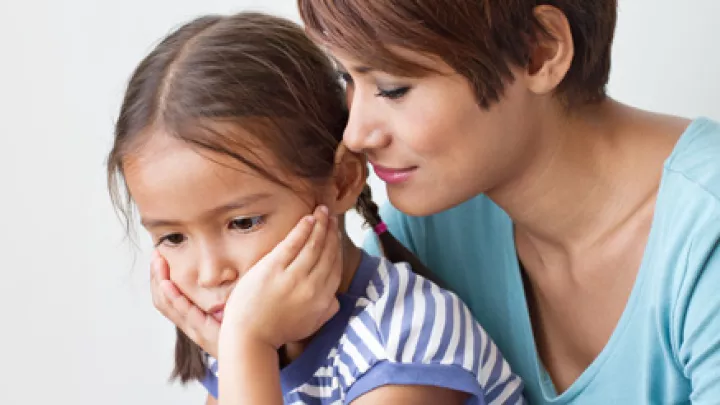
Tips for Parents: Arguing the “Right” Way in Front of Your Kids

In all marriages there are levels of disagreement and conflict. It’s natural and part of growing as a married couple and as family. But, is there a correct way to disagree and argue when kids are present? Stephanie Marcy, PhD, psychologist at Children’s Hospital Los Angeles recently shared her thoughts on Hallmark Channel’s Home & Family Show. As part of her clinical work at Children’s Hospital Los Angeles for the last 15 years, Dr. Marcy has treated kids who have experienced trauma in their life, from medical, family, and community sources. Her expert advice is also featured in the award winning blog article, Talking to Your Kids about Violence and Disaster.
When parents argue, kids are often more frightened by tone and volume of voice rather than content, explains Marcy.
Dr. Marcy’s 10 Tips to Consider for Arguing if Kids are Present
- Do not curse, yell or do name calling. Certain words (e.g., “stupid”) are “bad words” for kids. Keep the tone friendly and avoid loud voices. Kids often are more scared by tone and volume than content.
- Do not threaten one another.
- Do not disagree on parenting styles in front of your child. Discuss disagreements privately and create nonverbal cues when differences arise. Parents need to present a united front to children to prevent confusion and manipulation.
- Take a breather. For example, run an errand, take a walk and return to the issue later.
- Fighting “behind closed doors” does not necessarily lessen the impact on kids; it may raise anxiety as they assume the argument is about them.
- Avoid scary or inappropriate topics (e.g., gossip, sex, cheating, drug or alcohol use).
- Don’t make your child take sides or run interference to prevent fights. This can be very frightening and confusing.
- If arguing gets out of hand, acknowledge the inappropriate behavior and allow your child to observe the apology and make-up hugs, etc. If your child is old enough, engage them and ask how they felt during the argument, what fears they have and provide direct reassurance.
- Consider couples counseling to find more constructive ways of problem solving, and perhaps counseling for the kids if they show anxiety in reaction to the fighting.
- Parental arguing may have a huge impact on their observing children. Outcomes can be presented by a range of behaviors in kids: depression, withdrawn behavior, tears, anxiety, separation anxiety from parents. Kids could display overly aggressive behavior as well, like rebelliousness.


